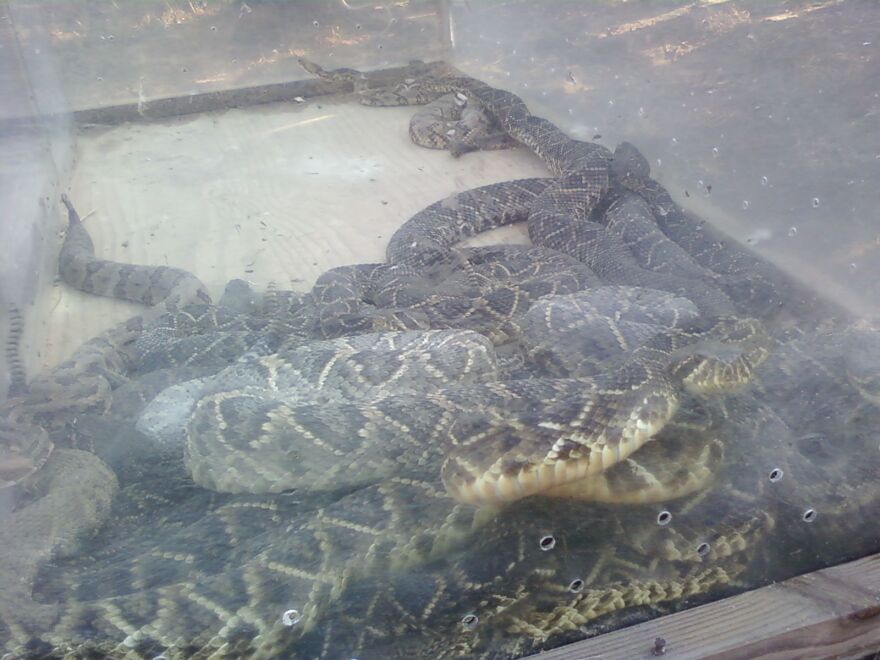Over the weekend, thousands of people descended on the small town of Whigham, Georgia to see an attraction centered on an unlikely animal- the rattlesnake. Some are concerned the practice could hurry the animal towards extinction.
Unlike the harmless infant toys, the sounds these rattles make most people to shudder with fear. They belong to the Eastern Diamondback Rattlesnake, the largest venomous snake in North America. But, in Whigham, a fifty-year-old festival called the Rattlesnake Roundup centers around catching as many of these dangerous reptiles as possible. A practice, Greg Ponder, the Whigham Community Club President, said is a tradition born from necessity.
“Fifty-Three years ago we had a lot of people that did a lot of quail hunting and we had a lot of bird dogs and a lot of people were being bitten and a lot of dogs were being bitten. So, at the time they thought they would have a roundup to sort of help eliminate some of the population because it was so bad,” Ponder explained.

But, Bob Walker, a field biologist and environmental educator, said the practice is no longer needed. And in fact, he said that continuing the practice actually puts the snake population in danger.
“Rattlesnakes have a special place in our environment, in our ecosystem. We should be protecting our rattlesnakes. The Eastern Diamond Back Rattlesnake is almost an endangered species now because of overhunting, people just killing them and we should be protecting them,” Walker contended.
Although the festival is centered on killing snakes, Randy Campbell of Campbell Farms said the event also serves a less deadly purpose.
“We furnish some zoos, also some universities where they do research on different parts and there’s been a lot of medicines that have been developed from the venom. So, there’s a lot of good use to the roundups,” Campbell noted.
The roundups bring in about 12,000 people every year. Although the exact impact on the area’s economy isn’t known. But, Repticon organizer and snake enthusiast, Wendy Kozikowski said that the tradition is simply…
**“… Animal cruelty, these people are going out there saying that it’s their heritage to go catch these rattlesnakes, to sew their mouths shut so that they can’t bite anybody, and exploit them to do pictures and simply cut off their heads when they’re done with them,” Kozikowski said
Many states have begun to either ban the practice of roundups or convert them into non-lethal catch and release hunts while keeping the carnival aspect intact. That way, supporters say, the local economy doesn’t suffer. But, Jim, a venomous snake educator, who asked his last name not be used on air, said progress is slow.
“Obviously I’m totally against that. But, you know, people are trying to change it. They’re trying to change the killing aspect of it and turn it into educational and t they’re making progress; but its baby steps. But, you got to start somewhere,” Jim said.
Only the states of Georgia, Alabama, Texas and Oklahoma continue to hold lethal roundups. In advance of Saturday’s roundup in Whigham, a petition with close to 50-thousand signatures seeking to ban the practice was delivered to the Whigham Community Club. The U.S. Fish and Wildlife Conservation Commission is also looking into placing the reptile on the national endangered species list. But, for now the tradition continues in South Georgia.
**Clarification: The organizers of the Whigham Rattlesnake Roundup do not photograph snakes with their mouths sewn shut. However, other roundups are known for the practice.

